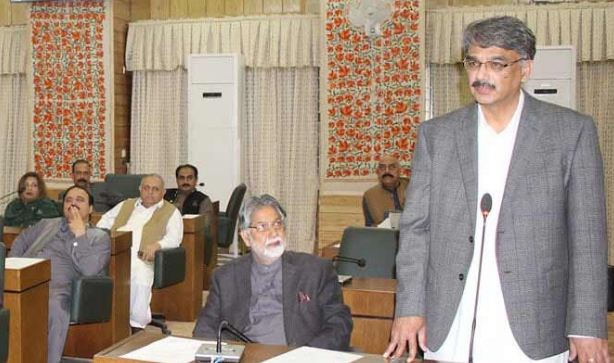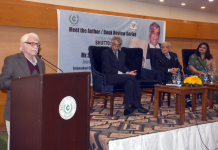ISLAMABAD: The Pakistan Muslim League-Nawaz (PML-N) has announced its separation from the Azad Jammu and Kashmir (AJK) government, declaring that it will now sit in the opposition benches.
Speaking to the media, PML-N AJK President Shah Ghulam Qadir said that if the Pakistan Peoples Party (PPP) brings a no-confidence motion, it would be within its democratic right.
Advertisement
However, he made it clear that the PML-N would not become part of any new government formed as a result of such a move.
“We will not support any unnatural or forced coalition,” Qadir asserted, adding that his party’s role from now on would be that of a constructive opposition.
He also warned that any party member who defied the official policy would face disciplinary action. “The PML-N will remain active for the welfare of refugees and overseas Kashmiris,” he added.
The AJK PML-N president maintained that a stable and strong government in the region could only be established through transparent general elections. “We will run a vigorous election campaign under the leadership of Nawaz Sharif and Shehbaz Sharif,” Qadir said.
He further noted that the party would continue to play a positive role in resolving AJK’s constitutional and political crisis.
Prime Minister Chaudhry Anwarul Haq — a former Pakistan Tehreek-e-Insaf (PTI) member — is leading the AJK government. He took oath in April 2023, after Sardar Tanveer Ilyas was disqualified from being elected or being the member of the Legislative Assembly for two years for contempt.
Haq, who had been serving as the assembly speaker since August 2021, was elected unopposed as leader of the house after forming a 12-member ‘forward bloc’ in the PTI, and forging an alliance with the combined opposition, comprising PPP and PML-N lawmakers.
The PML-N’s move comes days after violent protests in the territory, claiming lives of at least nine people, three of them were police personnel, and injured over 100.
The region witnessed an overwhelming shutdown and wheeljam strike amid intermittent skirmishes between law enforcers and activists in the state capital, Muzaffarabad.
The Awami Action Committee (AAC) had issued a 38-point charter of demands, including ending 12 reserved seats for refugees and rolling back “privileges of the elite”, according to The News.
However, the matter was resolved on October 3, with the action committee and federal government reaching consensus on an agreement.

















